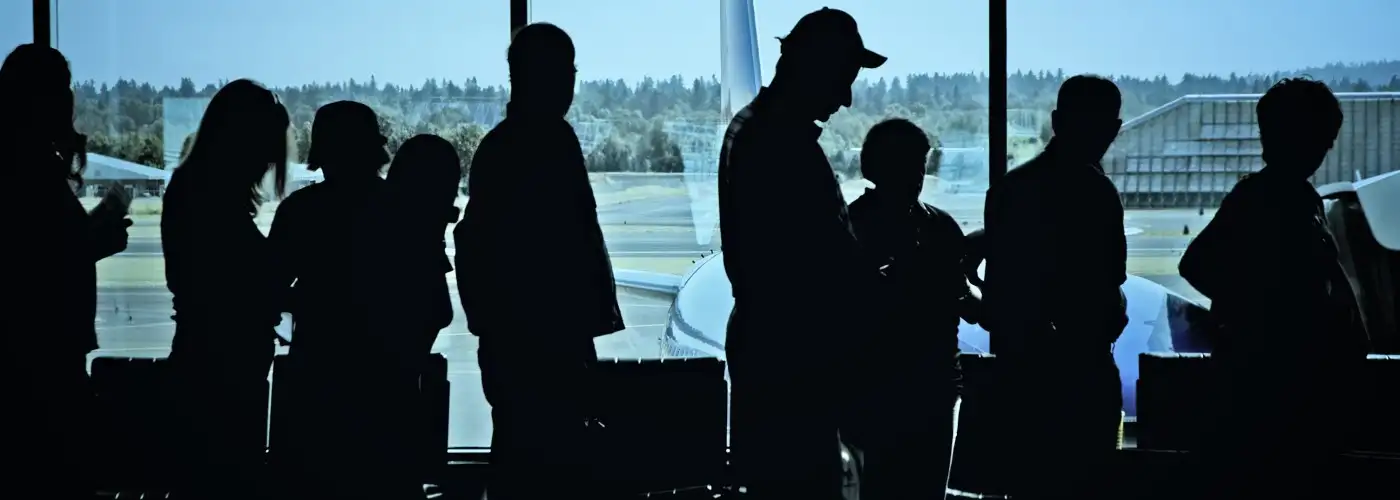This year, United dropped its practice of allowing families to board planes before other travelers. The legacy carrier joined the ranks of American and US Airways, which don’t officially offer pre-boarding or early boarding of any kind for families. But a handful of other airlines still do, including Delta (the last legacy airline supporting family-friendly boarding), JetBlue, and Southwest.
The industry’s approach to boarding is mixed, as is, ostensibly, popular opinion. In a recent poll of more than 1,000 respondents, we asked our readers who should board planes first: disabled travelers, frequent flyers, families, or those who’ve paid extra. Seventy-seven percent of respondents answered that disabled flyers should board ahead of everyone else; this lines up with standard industry practice. But respondents’ opinions about the three other groups were split: 9 percent said those who’ve paid extra should board first, 7 percent sided with families, and 7 percent voted for elite frequent flyers.
When we posed the same question on our Facebook page, reader Melissa Lory Smith commented, “We have two small children and I’d rather board last. Why would you want [to be] in your seat longer than you have to?”
Smith’s assertion touches on the crux of the issue: Boarding should be arranged in such a way that everyone spends as little time on the plane as possible. This means we need to get strategic. According to The New York Times, aircraft boarding time has doubled over the past few decades. Airlines have experimented with different boarding procedures over the years, but they clearly haven’t achieved a system that’s efficient enough to revolutionize boarding and gain industry standardization as of yet. American West Airlines tried a reverse-pyramid style of boarding, which was developed by a team of industrial engineers. Yet after American West merged with US Airways in 2002, the reverse-pyramid model was axed. Reports The New York Times, “US Airways dropped it in 2007 because some passengers without elite status sitting in the front could not find space for their bags.”
Airline profits drive the boarding process. To please its most faithful customers (business- and first-class flyers, as well as everyone with elite, gold medallion, diamond or whatever plunder-worthy status that’s been bestowed by an airline), most carriers board by groups with little or no regard to speed and efficiency. This ensures that frequent flyers get early access to precious overhead bin space, a hot commodity now that checked bags incur all kinds of extra charges.
Slow, hierarchical boarding processes also create more opportunity for airlines to generate revenue through passenger fees. So, in the end, many frustrated flyers pay priority-boarding costs in order to avoid checked-bag fees. (See a list of airlines that sell priority boarding on our sister site Airfarewatchdog.) It’s a me-first system in which airlines are corralling fees and passengers are grappling for the short-term benefit of bin space—and it’s a system in which passengers ultimately lose.
Let’s stop arguing over who gets to stand at the front of the line. Pre-boarding should be offered to passengers who need assistance, whether it’s a traveler with mobility issues or a mom traveling with several strollers and a crew of antsy tots. But beyond that, we should dump the ridiculous pecking order and file on the plane in accordance with a well-tested, timesaving system set up by engineers. Then maybe we’ll all get to spend a little less time on the plane.
You Might Also Like:
- OP-ED: I Don’t Care What You Wear on the Plane
- OP-ED: It’s My Right to Recline My Seat
- OP-ED: Keep Your Kids Away from My Flight
Photo: Airport Boarding Line via Shutterstock)
We hand-pick everything we recommend and select items through testing and reviews. Some products are sent to us free of charge with no incentive to offer a favorable review. We offer our unbiased opinions and do not accept compensation to review products. All items are in stock and prices are accurate at the time of publication. If you buy something through our links, we may earn a commission.
Related
Top Fares From
Today's Top Travel Deals
Brought to you by ShermansTravel
12-Night Peru Escorted Tour, Incl. Sacred...
Wingbuddy
 vacation
$2198+
vacation
$2198+
Amsterdam to Copenhagen: Luxe, 18-Night Northern...
Regent Seven Seas Cruises
 cruise
$12399+
cruise
$12399+
Ohio: Daily Car Rentals from Cincinnati
85OFF.com
 Car Rental
$19+
Car Rental
$19+




